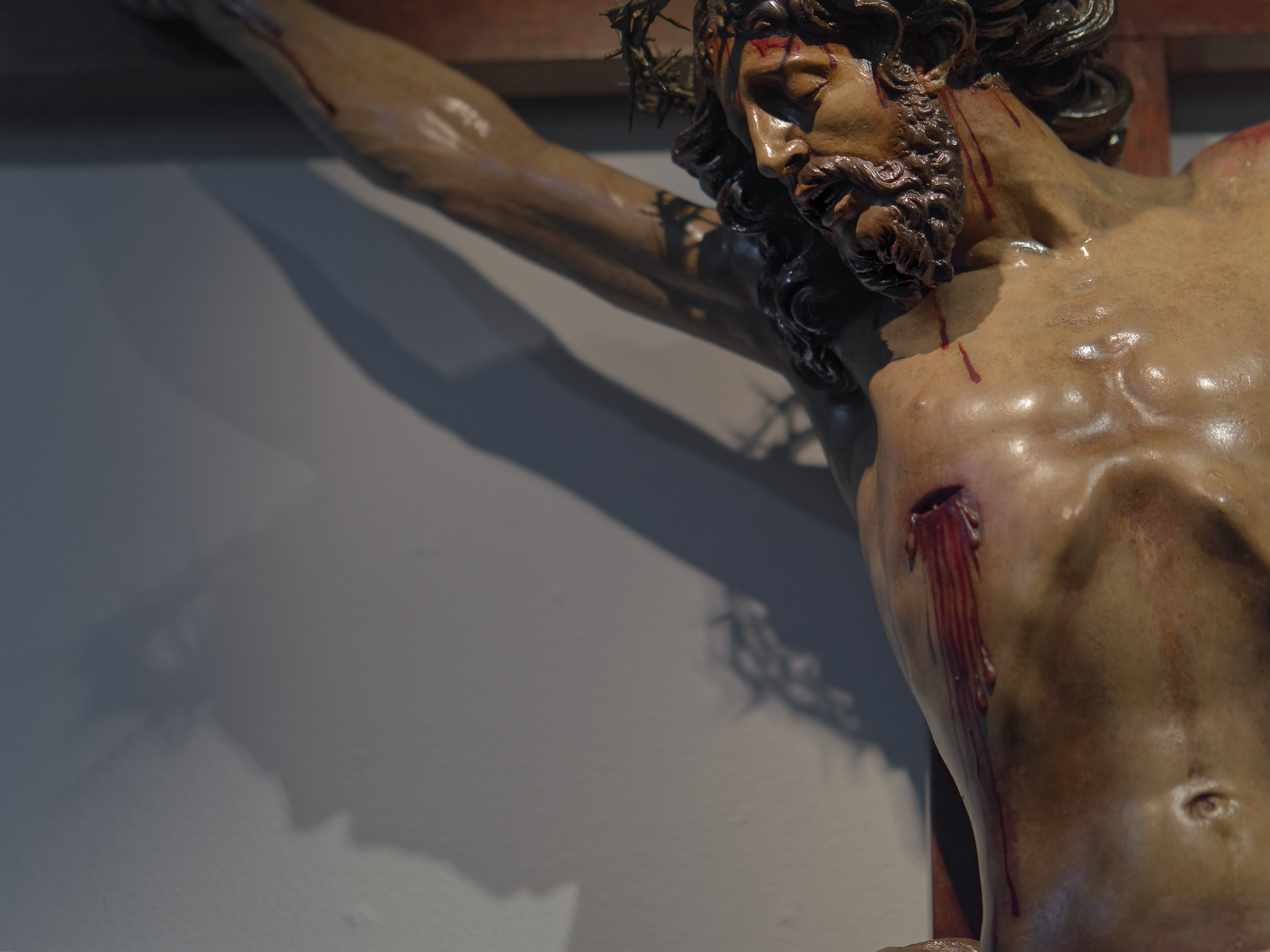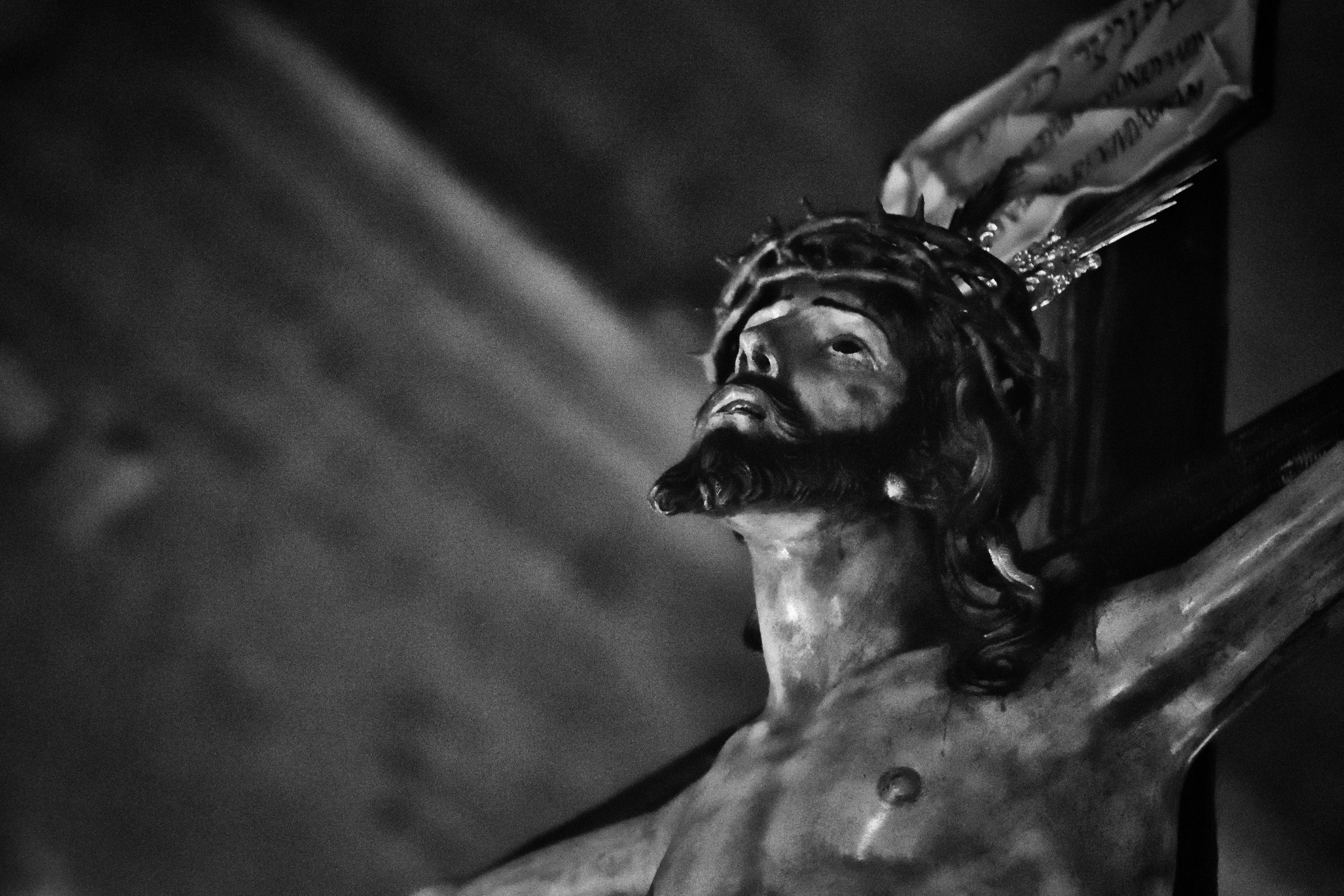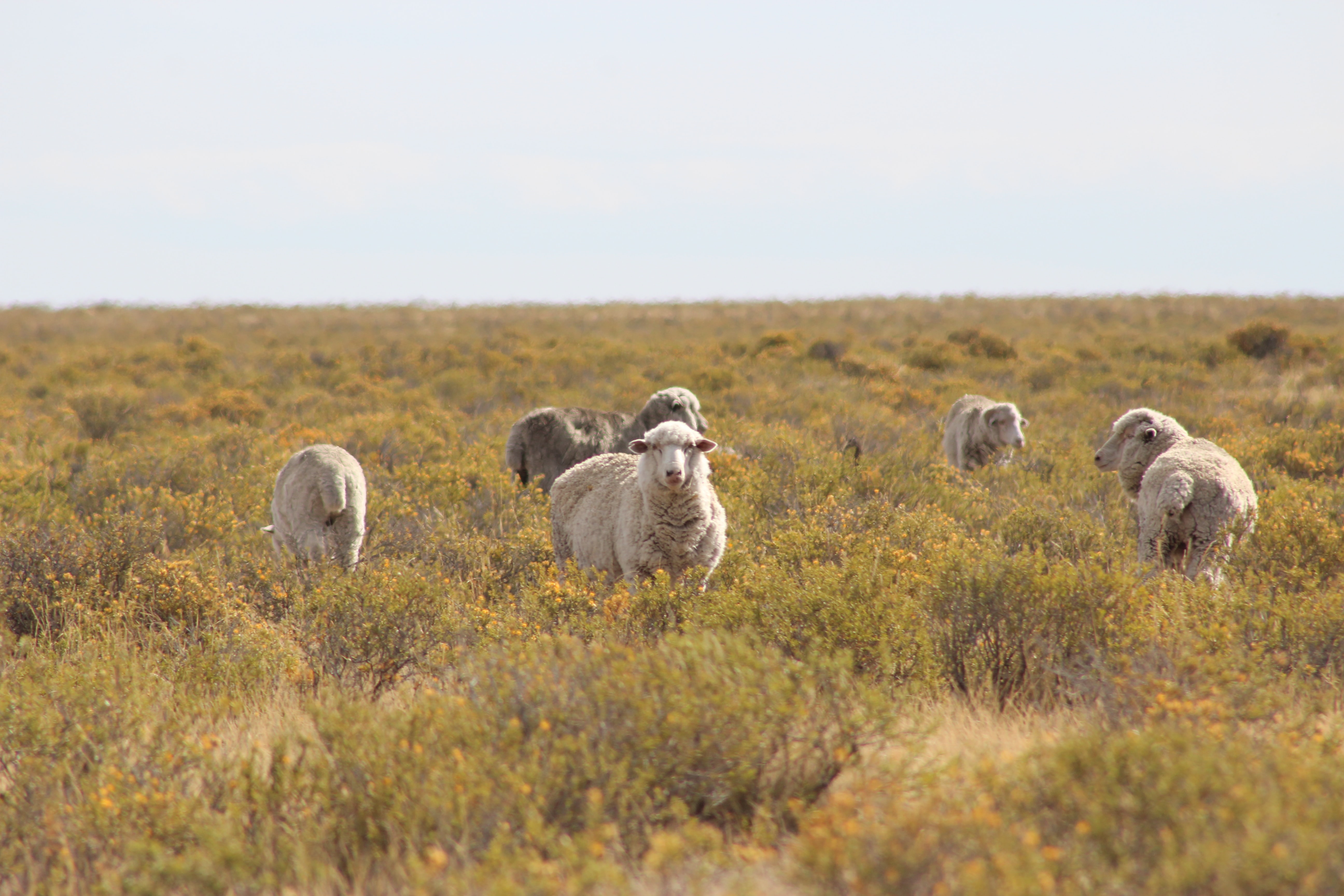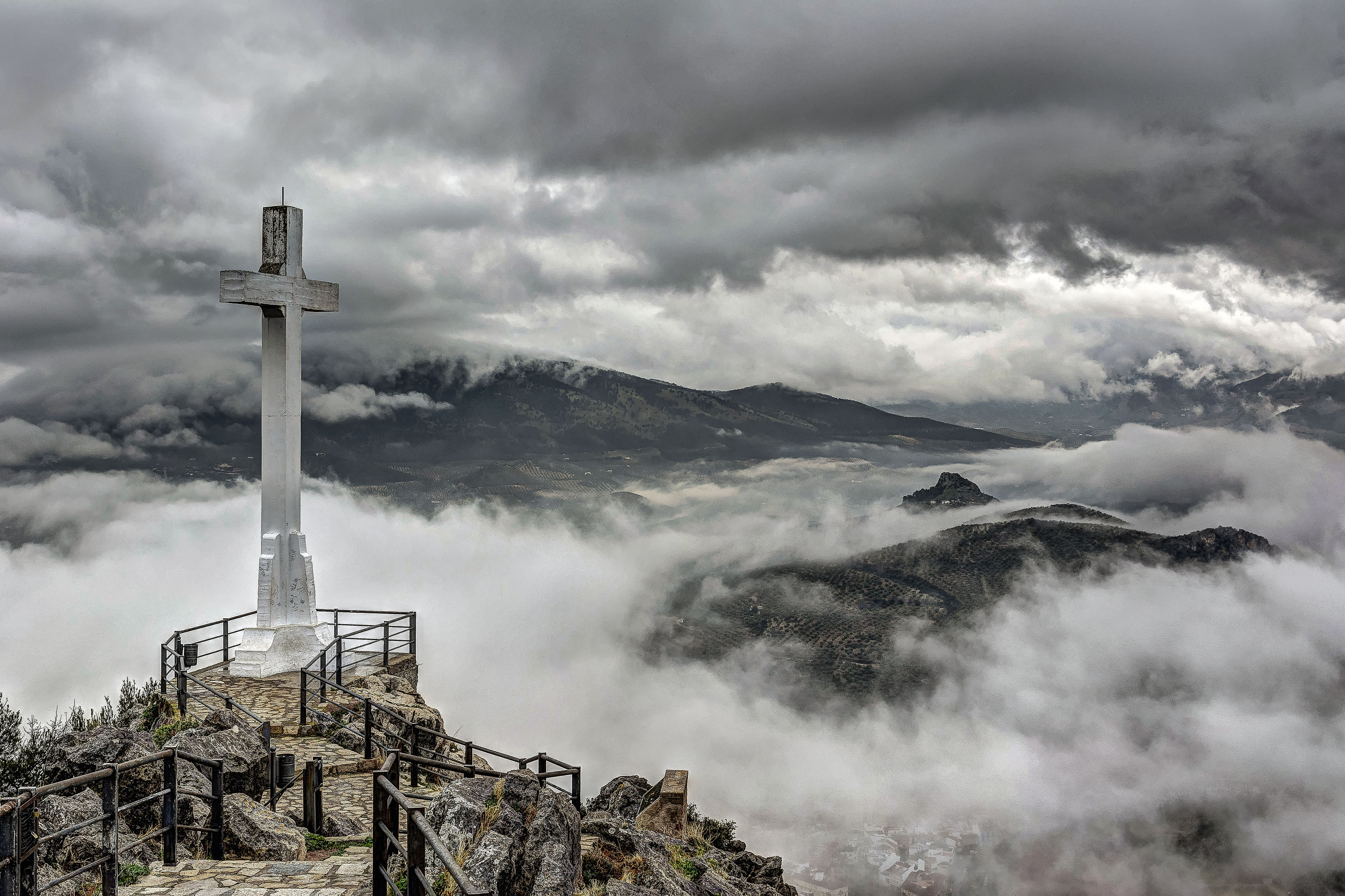My grandson, who is now 4 years old, likes to pretend he is a character from one of his books, movies or TV shows, and the rest of his family gets assigned roles, too. After spending a week in Florida, he was Mickey for the longest time, his mom was Minnie, his baby sister was assigned Pluto and Dad got to be Goofy. Sorry, Dad.
Not too long ago, he was telling Grandma and me that he had been reading stories in his children’s Bible. “Dad makes a good Adam,” he told us over FaceTime. “Mom is Eve, and Marie is the snake.” Poor Marie. But what about you, Michael? “I am God.”
In his innocence, he instinctively seems to choose what he sees as the most important role for himself. Thus, in the Garden of Eden story, he went straight to the top. But the little guy is 4, and he is just playing make-believe — what about us? We are adults, or at least teens. We have life experience; we “know better.” But how often do we put ourselves first, choose ourselves over others, put ourselves in the place of God, decide we know better than God?
Paul wrote to the Corinthians nearly 2,000 years ago, but he just as easily could be talking about us in 2022. Back then, as now, people thought they had it all figured out. They thought they knew how things should be and how they were. Salvation through a savior who is violently killed in a criminal’s execution? There’s no way that could be, in so many people’s minds, then and now. “The message of the cross is foolishness to those who are perishing,” Paul observes, “but to us who are being saved it is the power of God.” Christ crucified is a stumbling block and foolishness to those who decide they know better than God himself, but “to those who are called … Christ the power of God and the wisdom of God.”
We are called. All of us. Every day. What do we do with that call? Do we answer it? I think we all like to think we are answering the call, but our Gospel today tells us it has to be more than that. Are we among the virgins who go out to meet our Lord well-prepared? You can go into any room full of people, and you can be pretty sure a majority there believe in God, and even if they don’t, even more will believe they are good people. The problem is we, as people, are not the best judges of how good we are. We’re much better at deciding our faults aren’t “that bad.” Or that God “doesn’t really care about that.” There we are, putting ourselves in the place of God, and when doing so, we’re going out to meet our Lord far from prepared.
So what do we do? Jesus told us: repent and believe in the Gospel. We will fail, but we must start over, every day if necessary, every hour! And we must pray, pray always. Pray for grace, mercy, help to love and serve the Lord and our neighbors. We have been redeemed by a crucified and risen Savior. Believe it. Internalize it. Live it like nothing else matters.
A mi nieto, que ahora tiene 4 años, le gusta fingir que es un personaje de uno de sus libros, películas o programas de televisión, y al resto de su familia también se le asignan roles. Después de pasar una semana en Florida, fue Mickey por mucho tiempo, su mamá era Minnie, su hermanita fue asignada a Pluto y papá fue Goofy. Lo siento, Papá.
No hace mucho, nos estaba contando a su abuela y a mí que había estado leyendo historias en la Biblia de niños. “Papá es un buen Adán”, nos dijo por FaceTime. “Mamá es Eva y Marie es la serpiente”. Pobre María. Pero, “¿y tú, Miguel? ¿tú quién eres?” “Yo soy Dios,” nos dijo.
En su inocencia, instintivamente parece elegir lo que considera el papel más importante para él. Así, en la historia del Jardín del Edén, escogió el más superior. Pero el pequeño tiene apenas 4 años y solo está jugando a la fantasía. ¿Qué hay de nosotros? Somos adultos, o al menos adolescentes. Tenemos experiencia de vida; nosotros “sabemos mejor”. Pero, ¿con qué frecuencia nos ponemos a nosotros mismos en primer lugar, nos elegimos sobre los demás, nos ponemos en el lugar de Dios, decidimos que sabemos más que Dios?
Pablo escribió a los corintios hace casi 2000 años, pero fácilmente podría estar hablando de nosotros en 2022. En aquel entonces, como ahora, la gente pensaba que lo tenía todo resuelto. Creían que sabían cómo debían ser las cosas y cómo eran. ¿La salvación a través de un salvador que es asesinado violentamente en la ejecución de un criminal? No hay forma de que pueda ser así, en la mente de tantas personas, entonces y ahora. “la predicación de la cruz es una locura para los que van por el camino de la perdición”, observa Pablo, “en cambio, para los que van por el camino de la salvación, para nosotros, es fuerza de Dios”. Cristo crucificado es piedra de tropiezo y locura para aquellos que deciden que saben más que Dios mismo, pero “para los llamados… Cristo es la fuerza y la sabiduría de Dios”.
Somos llamados. Todos nosotros. Todos los días. ¿Qué hacemos con esa llamada? ¿Le respondemos? Creo que a todos nos gusta pensar que estamos respondiendo al llamado, pero nuestro Evangelio de hoy nos dice que tiene que ser más que eso. ¿Estamos entre las vírgenes que salen bien preparadas al encuentro de nuestro Señor? Podrías entrar en cualquier habitación llena de gente y estar bastante seguro de que la mayoría cree en Dios, e incluso si no, aún más creerán que son buenas personas. El problema es que nosotros, como personas, no somos los mejores jueces de lo buenos que somos. Somos mucho mejores para decidir que nuestras fallas no son “tan malas”. O que a Dios “realmente no le importa eso”. Ahí estamos, poniéndonos en el lugar de Dios, y al hacerlo, estamos saliendo al encuentro de nuestro Señor lejos de estar preparados.
¿Asi que, que hacemos? Jesús nos dijo: arrepientense y creen en el Evangelio. Fracasaremos, pero empezamos de nuevo, todos los días, si es necesario, ¡cada hora! Y debemos orar, orar siempre. Oren por gracia, misericordia, ayuda para amar y servir al Señor y a nuestro prójimo. Hemos sido redimidos por un Salvador crucificado y resucitado. Créenlo. Interiorizenlo. Vívenlo como si nada más importara.
 Mike Karpus is a regular guy. He grew up in Michigan’s Upper Peninsula, graduated from Michigan State University and works as an editor. He is married to a Catholic school principal, raised two daughters who became Catholic school teachers at points in their careers, and now relishes his two grandchildren, including the 3-year-old who teaches him what the colors of Father’s chasubles mean. He has served on a Catholic School board, a pastoral council and a parish stewardship committee. He currently is a lector at Mass, a Knight of Columbus, Adult Faith Formation Committee member and a board member of the local Habitat for Humanity organization. But mostly he’s a regular guy.
Mike Karpus is a regular guy. He grew up in Michigan’s Upper Peninsula, graduated from Michigan State University and works as an editor. He is married to a Catholic school principal, raised two daughters who became Catholic school teachers at points in their careers, and now relishes his two grandchildren, including the 3-year-old who teaches him what the colors of Father’s chasubles mean. He has served on a Catholic School board, a pastoral council and a parish stewardship committee. He currently is a lector at Mass, a Knight of Columbus, Adult Faith Formation Committee member and a board member of the local Habitat for Humanity organization. But mostly he’s a regular guy.
Feature Image Credit: Nicholas BL, www.cathopic.com/photo/10893-muerte-crucificado








 Sheryl is happy to be the number 1 cheerleader and supporter for her husband, Tom who is a candidate for the Permanent Diaconate in the Diocese of Kalamazoo. They are so grateful for the opportunity to grow together in this process. Sheryl’s day job is serving her community as the principal for St. Therese Catholic School in Wayland, Michigan. Since every time she thinks she gets life all figured out, she realizes just how far she has to go, St. Rita of Cascia is her go-to Saint for intercession and help. Home includes Carlyn, a very, very goofy Golden Retriever and Lucy, our not-so-little rescue puppy.
Sheryl is happy to be the number 1 cheerleader and supporter for her husband, Tom who is a candidate for the Permanent Diaconate in the Diocese of Kalamazoo. They are so grateful for the opportunity to grow together in this process. Sheryl’s day job is serving her community as the principal for St. Therese Catholic School in Wayland, Michigan. Since every time she thinks she gets life all figured out, she realizes just how far she has to go, St. Rita of Cascia is her go-to Saint for intercession and help. Home includes Carlyn, a very, very goofy Golden Retriever and Lucy, our not-so-little rescue puppy. 
 Kathryn Mulderink, MA, is married to Robert, Station Manager for Holy Family Radio. Together they have seven children (including Father Rob), and four grandchildren. She is President of the local community of Secular Discalced Carmelites and has published five books and many articles. Over the last 30 years, she has worked as a teacher, headmistress, catechist, Pastoral Associate, and DRE, and as a writer and voice talent for Catholic Radio. Currently, she serves the Church by writing and speaking, and by collaborating with various parishes and to lead others to encounter Christ and engage their faith. Her website is
Kathryn Mulderink, MA, is married to Robert, Station Manager for Holy Family Radio. Together they have seven children (including Father Rob), and four grandchildren. She is President of the local community of Secular Discalced Carmelites and has published five books and many articles. Over the last 30 years, she has worked as a teacher, headmistress, catechist, Pastoral Associate, and DRE, and as a writer and voice talent for Catholic Radio. Currently, she serves the Church by writing and speaking, and by collaborating with various parishes and to lead others to encounter Christ and engage their faith. Her website is 
 Dakota lives in Denver, CO with her husband, Ralph, and their two sons, Alfie & Theophilus. She is the Dean of Enrollment Management for Bishop Machebeuf High School where her husband also teaches. You can find Dakota at the zoo or a brewery with her family or with her nose in a book at home. For more of Dakota’s writing check out
Dakota lives in Denver, CO with her husband, Ralph, and their two sons, Alfie & Theophilus. She is the Dean of Enrollment Management for Bishop Machebeuf High School where her husband also teaches. You can find Dakota at the zoo or a brewery with her family or with her nose in a book at home. For more of Dakota’s writing check out 

 Tami Urcia grew up in Western Michigan, a middle child in a large Catholic family. She spent early young adulthood as a missionary in Mexico, studying theology and philosophy, then worked and traveled extensively before finishing her Bachelor’s Degree in Western Kentucky. She loves tackling projects, finding fun ways to keep her little ones occupied, quiet conversation with the hubby and finding unique ways to love. She works at for Christian Healthcare Centers, is a guest blogger on
Tami Urcia grew up in Western Michigan, a middle child in a large Catholic family. She spent early young adulthood as a missionary in Mexico, studying theology and philosophy, then worked and traveled extensively before finishing her Bachelor’s Degree in Western Kentucky. She loves tackling projects, finding fun ways to keep her little ones occupied, quiet conversation with the hubby and finding unique ways to love. She works at for Christian Healthcare Centers, is a guest blogger on 


 Emily Jaminet is a Catholic author, speaker, radio personality, wife, and mother of seven children. She earned a bachelor’s degree in mental health and human services from the Franciscan University of Steubenville. She is the co-founder of
Emily Jaminet is a Catholic author, speaker, radio personality, wife, and mother of seven children. She earned a bachelor’s degree in mental health and human services from the Franciscan University of Steubenville. She is the co-founder of 
